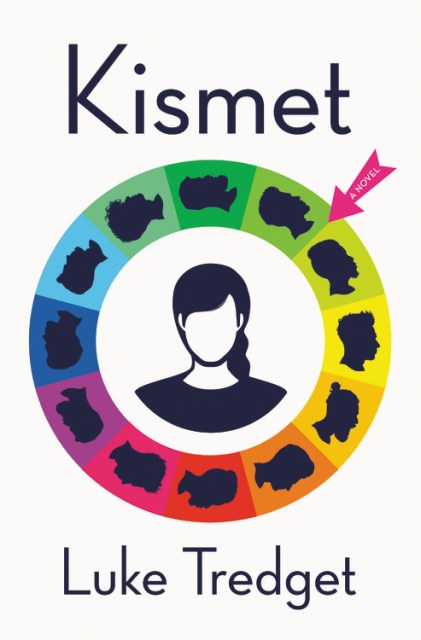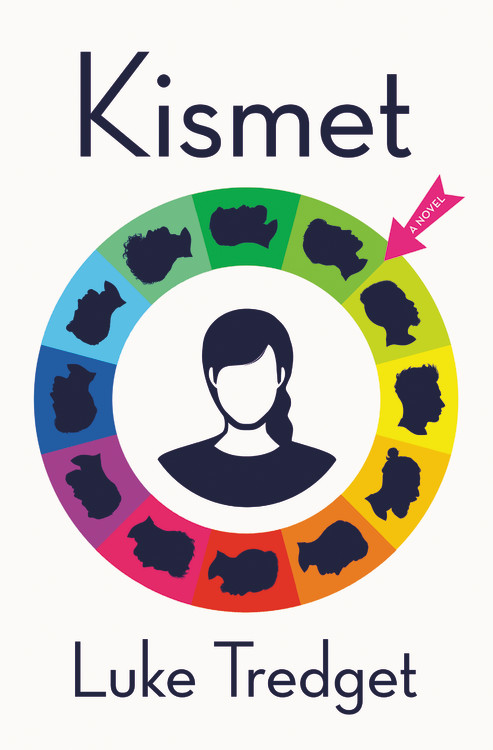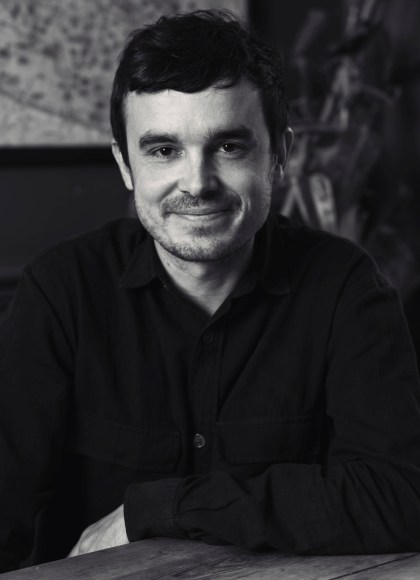By clicking “Accept,” you agree to the use of cookies and similar technologies on your device as set forth in our Cookie Policy and our Privacy Policy. Please note that certain cookies are essential for this website to function properly and do not require user consent to be deployed.
Kismet
A Novel
Contributors
By Luke Tredget
Formats and Prices
- On Sale
- Aug 7, 2018
- Page Count
- 400 pages
- Publisher
- Little, Brown and Company
- ISBN-13
- 9780316418294
Price
$31.00Price
$39.00 CADFormat
Format:
- Hardcover $31.00 $39.00 CAD
- ebook $13.99 $17.99 CAD
- Audiobook Download (Unabridged)
This item is a preorder. Your payment method will be charged immediately, and the product is expected to ship on or around August 7, 2018. This date is subject to change due to shipping delays beyond our control.
Buy from Other Retailers:
Black Mirror meets Bridget Jones in this whip-smart debut set in a world where the ultimate matchmaking app has redefined romance.
Twenty-nine-year-old Anna is smart, vivacious, and in the midst of a complete existential meltdown. Sure, from the outside everything in her life seems to be going just fine: She has a decent job, a devoted BFF, and a lovely boyfriend named Pete with whom she is exactly 70% compatible, according to Kismet, the matchmaking app that everyone in Anna’s world uses to find love.
Still . . . isn’t there supposed to be more to life than this? Should she settle for a secure and predictable existence with Pete, or risk everything for a life of passion and adventure?
With true adulthood (the dreaded thirty) just weeks away, Anna secretly re-joins Kismet, and soon encounters Geoff, a dashing, forty-something journalist with whom she has a shockingly high compatibility score of 81. How can she not at least see where this goes . . . ? A funny and propulsive love story for our over-networked age, Kismet challenges us to take stock of how technology shapes our desires and what it means to “settle.”
Twenty-nine-year-old Anna is smart, vivacious, and in the midst of a complete existential meltdown. Sure, from the outside everything in her life seems to be going just fine: She has a decent job, a devoted BFF, and a lovely boyfriend named Pete with whom she is exactly 70% compatible, according to Kismet, the matchmaking app that everyone in Anna’s world uses to find love.
Still . . . isn’t there supposed to be more to life than this? Should she settle for a secure and predictable existence with Pete, or risk everything for a life of passion and adventure?
With true adulthood (the dreaded thirty) just weeks away, Anna secretly re-joins Kismet, and soon encounters Geoff, a dashing, forty-something journalist with whom she has a shockingly high compatibility score of 81. How can she not at least see where this goes . . . ? A funny and propulsive love story for our over-networked age, Kismet challenges us to take stock of how technology shapes our desires and what it means to “settle.”
Genre:
-
"The ennui of the modern-day privileged class has rarely been captured as poignantly as in Luke Tredget's Kismet, a deeply felt reflection of the ways in which technology that was supposed to bring people closer together often only serves to isolate them (and occasionally drive them mad). And as Tredget's complicated, often frustrating, but eminently relatable protagonist shows, the truest human connection occurs when we put our phones away."DoreeShafrir, author of Startup
-
"Tredget writes a funny, timely story, with flawed and relatable characters, about how technology affects our desires and what it means to 'settle.' Though he satirizes modern dating and the idea of perfection in a relationship, he writes with an engaging warmth and lightness. Readers will surely enjoy this witty modern love story."Booklist
-
"A sharply written and heartfelt story about the connections between us, technological or otherwise. Luke Tredget has created a protagonist so lovable that you won't be able to stop reading until you know her fate."LeslieCohen, author of This Love Story WillSelf-Destruct
-
"Sharp, witty and full of tension...an intelligent and highly readable novel."IrishTimes
-
"Tredget's trenchant, entertaining debut traces how big data and social media have become an obstacle for healthy relationships...An incisive view of the uncertainties of contemporary adulthood."Publishers Weekly
-
"Kismet is compelling for more than its unflinching study of the infiltration of romance by technology and algorithms. At its heart this novel is about what endures in spite of all that; a modern love story of exceptional warmth, intelligence and humanity."Luke Kennard, author of The Transition
-
it "[a] perceptive debut novel...[a] fast-moving and witty love story for the digital age."Shelf-Awareness
Newsletter Signup
By clicking ‘Sign Up,’ I acknowledge that I have read and agree to Hachette Book Group’s Privacy Policy and Terms of Use







